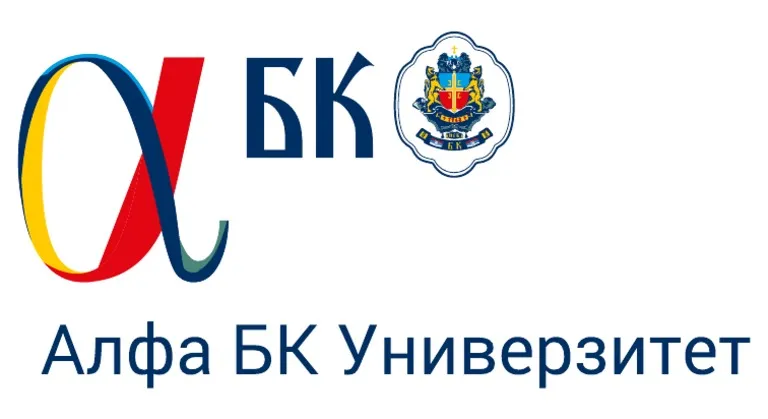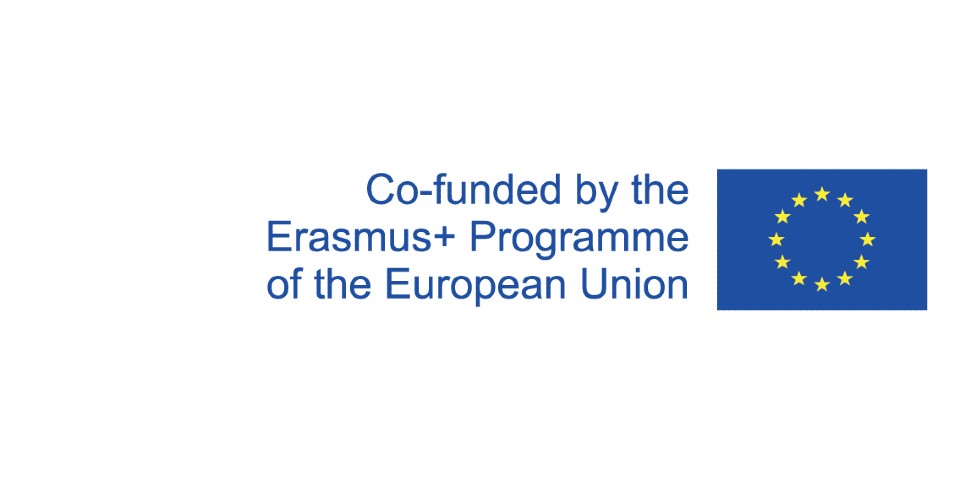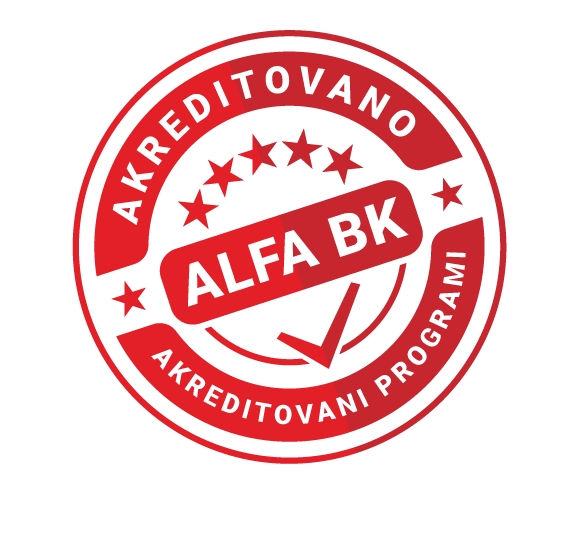International Cooperation
THE DRAFT OF THE INTERNATIONAL STRATEGY OF ALFA BK UNIVERSITY
Since its establishment, Alfa BK University (hereinafter referred to as “the University”), as the first private university in the Republic of Serbia, has been actively working on the development and implementation of high standards that are expected from a modern higher education institution. Continuing the strong tradition with the use of the latest achievements in the field of science and education, the University has been continuously working on raising its capacities and encouraging the excellence of its students.
The University accepts international cooperation as an extremely important element in the functioning of any higher education institution that strives for continual development. As such, it is a process the University has been working on it since its establishment and has treated it with the necessary attention as its strategic goal and preference.
In the process of advancing international cooperation, the University has signed co-operation agreements with over twenty higher education institutions from Europe, the United States and Asia so far.
Cooperation so far has been established with the following universities:
European School of Economics (21/2/1999), The University of Roma – Italy (11/11/2000), The American College of Thessaloniki – Greece (20/2/2003), Northwood University – USA (23/11/2006), LUMUCI – Italy (18/8/2005), Argosy University/Sarasota – USA (23/11/2006), Белгородски государственны технологически университет (23/1/2006), Jonkoping University, School of Education and Communication – Sweden (17/10/2012), Варнеский Свободный Университет „Черноризец Храбар“ (03/07/2013), College of International Exchange of Shanghai University (09/12/2013), Yancheng Institute of Technology – China (05/12/2013), Southeast University – China (05/12/2013), Faculty of Sport and Phisical Education – Bosnia and Hercegovina (19/04/2013), University of Business Engineering and management – Republika Srpska (16/04/2014), University Donja Gorica – Montenegro (17/02/2014), International University of Struga – Macedonia (13/06/2014), Tambov State University (09/07/2015), International Slavic University G. R. Derzhavin (09/07/2015) Belarusian State University (22/11/2016), Varna Free University “Chernorizets Hrabar” (09/07/2019), Belarusian-rusian university (03/12/2019), Yanka Kupala State University of Grodno (03/12/2019).
In addition to raising international recognition and reputation, due to aforementioned co-operation and agreements, the University has achieved the following:
- Organization of international conferences (two international conferences are being organized at the Faculty of Trade, Banking and Auditing and the Faculty of Foreign Languages in the current year)
- Organization of roundtable discussions with international participation
- Publishing publications with an international editorial board (Речи: Journal of Language, Literature and Culture as well as Proceedings of the International Scientific Conference of the Faculty of Foreign Languages
- Guest lectures of renowned professors from abroad
- Guest lectures of Alfa BK University professors at foreign higher education institutions
- Conferences in which students from different countries participated
- Work on the preparation and implementation of joint projects with partners from abroad
The University’s view is that the process of internalization is not a goal in itself, but an opportunity for the overall improvement of functioning through the exchange and application of good practices and experiences.
PROJECT TITLE
Mobility of higher education students and staff supported
by internal policy funds (KA131-HED) – Coordinator:
ALFA BK Univerzitet
Mobility of higher education students and staff supported
by internal policy funds (KA131-HED) – Coordinator:
GOALS AND OBJECTIVES OF THE UNIVERSITY IN THE PROCESS OF INTERNATIONALIZATION
The University has five faculties (Faculty of Finance, Banking and Auditing; Faculty of Management in Sport; Faculty of Information Technology; Faculty of Mathematics and Computer Science; Faculty of Foreign Languages) and the Academy of Arts. The process of internationalization is realized and conducted by the University in a way that all bodies of the University, Faculties and the Academy of Arts equally participate in it and give their active contribution. The study programs implemented at the University are in accordance with European standards in terms of conditions for the admission of students, duration of studies, the way of conducting studies and obtaining a diploma.
Through the process of internalization, the University promotes its principal educational and social mission. All previous experiences and good practices gained in the process of internationalization will be applied and promoted by the University. The University will continue to co-operate with the higher education institutions with which it has established cooperation in the previous period and also establish new partnerships.
Through the implementation of the Internationalization Strategy, the University will strive to achieve the following goals:
- Continuous monitoring of contemporary trends in the European education system
- Improvement of existing and development of new study programs that will improve the academic offer of the University for domestic and foreign students
- Increasing the existing number of students and attracting students from abroad
- Involvement in the Erasmus program and raising the capacity of the University to participate in the program
- Realization of outgoing and incoming mobility of employees (teachers, associates and administrative staff)
- Realization of incoming and outgoing mobility of students
- Promoting the establishment and improvement of cooperation with scientific institutions worldwide
- Improving the exchange of information with foreign higher education and scientific institutions globally
- Taking an active role in regional socio-economic development programs
- Raising the international reputation of the University, which is associated with the high quality of the learning and teaching process
The University will continuously evaluate the achievement of the goals set in the Internationalization Strategy. All achieved results will be carefully analyzed. Based on the results of the evaluation, the University will apply appropriate corrective measures and adapt the principle mission objectives. The process of further planning will be realized on the basis of gained experiences.
Having in mind the importance of raising the environmental awareness of employees and students at the University, during the implementation of this Strategy, care will be taken to preserve the environment (promoting green technologies, using digital technologies instead of paper, using appropriate means of transport that pollute less, etc.). The university will work on providing conditions (access to facilities and premises where classes are held, appropriate ramps, toilets, elevators, etc.) that enable students with special needs to attend classes without hindrance.
INTERNATIONAL COOPERATION
The university inherits a very successful long-term cooperation with foreign higher education institutions from Europe, the United States and Asia. One of the main goals of the University is to further expand and improve international cooperation. This strategy is based on the selection of key partners both from EU member states and non-EU countries. Of special interest to the University are the partners, i.e. higher education institutions, where study programs in the fields similar to those that exist at our higher education institution are implemented.
The University will continue the already established cooperation with higher education institutions from abroad, while at the same time engaging in establishing new partnerships. It will strive to enable the improvement of the teaching and learning process in accordance with the best practices developed by higher education institutions from Europe through participation in international cooperation projects, but also to transfer its positive experiences in order to strengthen the rating of the institution.
Cooperation programs are expected to improve the teaching process and enable the adoption and implementation of innovative teaching methods.
Cooperation programs should enable the improvement of student culture, multiculturalism and multilingualism, as well as respect for fundamental principles of democracy, civil society and non-discrimination through the participation of students in mobility programs. In that way, one can present one’s own, but also get acquainted with other systems of values and achievements. All this should affect the improvement of the quality of higher education. International cooperation and project implementation are expected to create funding opportunities for exchange and cooperation, as well as the implementation of EPS.
TEACHING AND NON-TEACHING STAFF MOBILITY
In the initial period of Strategy implementation, the focus will be on the teaching and non-teaching staff mobility in order to raise the capacity of the University to participate in the Erasmus program. In addition, the realization of these mobilities raises the capacities of the teaching staff through the exchange of knowledge and experiences from relevant scientific fields (academic aspects), new ideas and practices in the fields of teaching, research and training.
The training of non-teaching staff through mobility will improve the functioning of this important segment within the University and the administrative support of the internationalization process. One of the strategic goals of the University is to expand international cooperation, establish and improve the teaching and non-teaching staff mobility with higher education institutions from the EU and outside the EU. In order to achieve this goal, the University will provide all the necessary conditions for the successful implementation of staff mobility in order to improve the teaching process, professional competencies and scientific research potential.
STUDENT MOBILITY
Student mobility is an important part of improving the education process at the University through the process of internationalization. Simultaneously with the improvement of outgoing staff mobility, work will be done on promoting incoming and outgoing mobility of students from foreign higher education institutions, as well as the outgoing and incoming student mobility towards them. In the first part, the University will provide all the necessary help and support to students who go on mobility to one of the foreign higher education institutions in order to make the most of their stay there. The university will work on the promotion of incoming mobility and assist all interested incoming students in overcoming difficulties in attending classes, but also in adapting to the new environment. The realization of student mobility programs, as well as the promotion of international experiences based on these exchange programs will increase the competitiveness of the institution.
DIGITALIZATION OF INTERNALIZATION PROCESS
This strategy encourages the University’s commitment to use digital technologies as a modern higher education institution, focused on green practices, to improve its work in all aspects, including the part related to its internationalization. The University will monitor and apply digital technologies wherever possible in the process of internationalization and especially when participating in programs where explicitly required, and in accordance with the rules of those programs.
The University will work on adjusting its regulations and procedures, in order to enable the signing of paperless contracts between higher education institutions, mobility participants, etc., as well as to provide appropriate digital support to participants in various types of projects. All of the above will be realized in accordance with the positive experiences and practices of other modern universities with which cooperation already exists or will be established in the future. The University will specifically allocate human and material resources for the implementation of this part of the strategy.
Inclusion and equal opportunities for all participants in the Internalization process
During the implementation of the Strategy on Internationalization, the University will take special attention to eliminate all types of discrimination in terms of race, religion, gender, nationality and ethnicity.
The University will continuously work on providing all timely and accurate information to all students and employees about the opportunities and obligations that exist during the implementation of the internationalization process. This will be realized by timely notification via the University website, use of social networks and organization of meetings with students and employees. The International Relations Office will be available to students and staff to provide answers to all their questions. Special attention will be paid to persons with special needs who will be provided with all additional information and presented opportunities that exist for them within the various programs in which the University will participate.
Strengthening social and civic engagement through the Internalization process
Through the Internalization process, all those activities that contribute to the improvement of social and civic engagement will be actively supported. The University will set aside a time to raise awareness of students in order to recognize the benefits of social engagement in the community, as well as to emphasize the value and importance of active civic engagement. The International Relations Office and the student organization at the University will help integrate incoming students into all those activities that contribute to the community. During the process, certain social problems and examples of good practice will be analyzed, and discussions will be organized on the role of young people in solving various social problems and in other activities in which they will be involved. Work will be done on the promotion of Volunteerism and the ways in which students work in the community.
As part of the preparatory activities for going to other countries for internships or studies, the Office for International Cooperation will prepare students and introduce them to the problems of the society/community they go to, the ways in which citizens participate in the social and political life of their immediate societies, by engaging young people in solving these problems.
Upon their return, students will need to describe their experiences within the mobility program and post them on the student portal to promote the idea of social engagement. Likewise, upon return, students will have the opportunity to share their experiences and the experiences of young people from the local community in which they stayed on their social participation and civic engagement in solving problems in the community (visiting media, forums, discussions organized by other institution or youth organization, etc.).
International Relations Office
In order to ensure the implementation of the Internationalization Strategy, University is establishing an International Relations Office. The Office will be in charge of the effective implementation of strategic commitments, as well as operational tasks related to internationalization. The International Relations Office will consist of qualified professionals with experience in international cooperation, preparation and implementation of projects, implementation of mobility programs, as well as excellent knowledge of foreign languages. Those engaged in the International Relations Office will realize their activities at the University level, but also at the level of the Faculties and the Academy of Arts, in order to provide appropriate support to all employees and students. They will actively work on the promotion of all programs and their results in which the University participates within the institution itself and beyond. The staff of the International Relations Office will continuously work on raising their competencies in accordance with contemporary practices and needs, as well as exchange their experiences with foreign partners.
ACTION PLAN FOR INTERNALIZATION
The method of implementing this strategy and reaching its objectives will be specifically regulated by the Action Plan for the Internationalization of the University. The Action Plan, which will be adopted by the Senate of the University, will be previously agreed through consultations with faculties and professional councils.
Odluka o imenovanju clanova Kancelarije za medjunarodnu saradnju
Odluka o formiranju Kancelarije za međunarodnu saradnju
Odluka o usvajanju Pravilnika o mobilnosti studenata
Odluka o usvajanju Strategije internacionalizacije Alfa BK Univerziteta
Pravilnik o mobilnosti studenata i priznavanju perioda mobilnosti
Strategija internacionalizacije Alfa BK Univerziteta
Cooperation agreements
ERASMUS PARTNERSHIP INSTITUTIONS
SIGNED AGREEMENTS WITH FOREIGN UNIVERSITIES
- European School of Economics (1999)
- The University of Roma – Italy (2000)
- The American College of Thessaloniki – Greece (2003)
- Northwood University – USA (2006)
- LUMUCI – Italy (2005)
- Argosy University/Sarasota – USA (2006)
- Белгородски государственны технологически университет (2006)
- Jonkoping University, School of Education and Communication – Sweden (2012)
- Варнеский Свободный Университет „Черноризец Храбар“ (2013)
- College of International Exchange of Shanghai University (2013)
- Yancheng Institute of Technology – China (2013)
- Southeast University – China (2013)
- Faculty of Sport and Phisical Education – Bosnia and Hercegovina (2013)
- University of Business Engineering and management – Republika Srpska (2014)
- University Donja Gorica – Montenegro (2014)
- International University of Struga – Macedonia (2014)
- Tambov State University (2015)
- International Slavic University G. R. Derzhavin (2015)
- Belarusian State University (2016)
- Varna Free University “Chernorizets Hrabar” (2019)
- Belarusian-rusian university (2019)
- Yanka Kupala State Universityof Grodno (3.12.2019)
- Nanning Normal University – China (2021)
- University Adriatic, Bar, Montenegro (2023)
- Georgian Technical University, Tbilisi, Georgia (2024)
- Moscow Institute of Technology and Management (EANOHE «MITM»), Russian Federation, Moscow (2024)
- Karshi engineering-Economics Institute, Qarshi, Uzbekistan (2024)
- University Of Thessaly, Volos, Greece, School of Technology, Department of Forestry, Wood Science and Design, Karditsa, Greece (2024)
- Burgas Free University, Burgas, Bulgaria (2024)
- Higher School of Security and Economics (HSSE), Plovdiv, Bulgaria (2024)
- Sveučilište u Zadru, Zadar, Hrvatska (2025)
- Varna University of Management, Varna, Bulgaria (2025)
- University of Thessaly, Volos, School of Economics and Business Administration economy, Department of Accounting and Finance, Larissa, Grčka (2025)
- STEKOM University, University of Computer Science & Technology, Indonesia (2025)
- PAR University of Applied Sciences, Rijeka, Croatia (2025)
- Istanbul Health and Technology University, Istanbul, Turkey
- Universitatea Politehnica Timisoara, Faculty of Communication Sciences, Rumania
Team for international cooperation
Erasmus + Programme activities will be organized and implemented by our International Relations Office:
- Head of International Relations Office will be responsible for main coordination of all activities related to mobility programmes. Head of International Relations Office and International Relations Officers from each Faculty will communicate with foreign partners, develop and manage collaborations, promote the mobility programmes and provide advice on mobility programmes in different aspects.
- Administrative tasks assigned to particular faculty will be coordinated by International Relations Officers at faculty level (five representatives). They will provide assistance with enrolment and support with faculty related mobility documents and issues.
- Academic coordinator will be responsible for decision making with regards to mobility, academic advice, assistance with learning agreements and academic recognition. He will work in close coordination with International Relations Officers.
- Student coordinator will help with accommodation and documents, work on the promotion of mobility programmes and organize social and educational events and activities that both outgoing and incoming students may find beneficial. He is supervised by International Relations Officers and Head of International Relations Office.
- Technical coordinator is responsible for providing the technical support necessary for communication and the operation of the International Relations Office. Language coordinator helps to the participants with weak language skills in order to make their mobility more efficient and effective and to improve the performance results of their learning. Technical coordinator and language coordinator work under the supervision of Head of International Relations Office.
Contacts:
Director of international cooperation
Marijana Joksimović
Assistance to incoming and outgoing participants
Incoming and Outgoing Students’ Brief Guide


Prvi privatni univerzitet
Prvi privatni univerzitet




